Comparing Verizon 5G Internet to Spectrum: Insights and Analysis
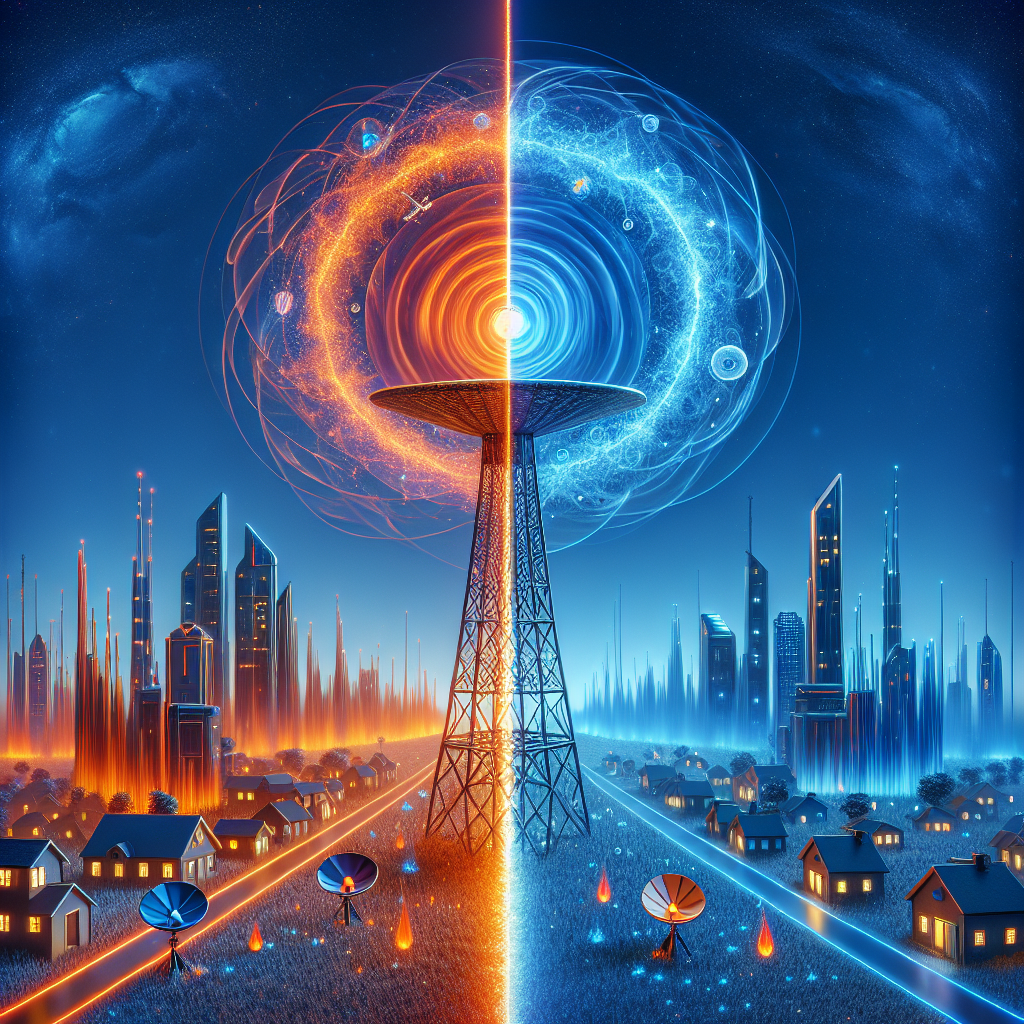
In the ever-evolving world the way we connect to the digital world has changed with service provider (ISP) being an influential dominator in our every day work, entertainment and staying connected with family. Verizon 5G Internet and Spectrum are two of the biggest wideband players. On one side, Verizon is praising the game-changing aspect of its 5G network, delivering unheard of speeds and connectivity while Spectrum provides a good ol’ batch of broadband while busy utilizing the same traditional cable infrastructure of yesteryear. Our comparison takes a deep dive into complete perspective and serious study of each provider in terms of speed, reliability, coverage, pricing, and customer service with the advantages and disadvantages of the other. This information compares Verizon 5G Internet to that of Spectrum in an effort to inform potential subscribers so that they can make the best decision based on their personal internet usage needs and preferences. This understanding is the root in navigating the broadband market landscape that is getting more and more complex every day.
Network Technology
In the ever-evolving world the way we connect to the digital world has changed with service provider (ISP) being an influential dominator in our every day work, entertainment and staying connected with family. Verizon 5G Internet and Spectrum are two of the biggest wideband players. On one side, Verizon is praising the game-changing aspect of its 5G network, delivering unheard of speeds and connectivity while Spectrum provides a good ol’ batch of broadband while busy utilizing the same traditional cable infrastructure of yesteryear. Our comparison takes a deep dive into complete perspective and serious study of each provider in terms of speed, reliability, coverage, pricing, and customer service with the advantages and disadvantages of the other. This information compares Verizon 5G Internet to that of Spectrum in an effort to inform potential subscribers so that they can make the best decision based on their personal internet usage needs and preferences. This understanding is the root in navigating the broadband market landscape that is getting more and more complex every day.
Overview of Verizon 5G technology
Verizon 5G takes wireless communication further than it has ever gone before with enhanced speed, ultra-low latency, and massive connectivity. Emphasizing improvement in all the features embodied by 4G, 5G further increases the capacity in order to meet new innovations such as augmented reality (AR), virtual reality (VR), IoT and smart cities. Verizon 5G is delivered using both low-band and high-band frequencies with the latter — known as millimeter wave, or mmWave — providing blazing-fast speeds and high capacity in urban areas, but at the cost of significantly reduced range.
As for why 5G represent such a big leap forward, in a nutshell, Verizon’s 5G promises much faster download speeds (up to 1 Gbps), vastly reduced latency (down to the level of milliseconds) and room to connect more devices simultaneously without sacrificing performance. These improvements make it perfect for data-heavy tasks and real-time scenarios, making it a resilient solution for consumer as well as business needs. A strategic advantage for the future In a world where the fourth industrial revolution is now a reality, Verizon is setting itself up as a leader in the transformation, with the capability to provide significant positive changes in connectivity and user experience as 5G coverage is rolled out.
Overview of Spectrum’s cable internet technology
Spectrum cable internet borrows from the hybrid fiber-coaxial (HFC) network, where fiber optic cables are used to deliver high-speed internet to very short distances, and coaxial cable is utilized across the final gap to the user. This infastructure allows Spectrum to be able to provide broadband internet services to many households in a cost effective manner. At the heart of its service, Spectrum leverages DOCSIS (Data Over Cable Service Interface Specification) technology—currently rolling out DOCSIS 3.1, allowing for gigabit speeds and improved reliability. The HFC network can deliver high-speed internet over long distances without major performance degradation like the pure copper-based DSL networks.
Spectrum also includes four-plus service tiers availability in its cable internet, giving customers the option to select a plan that suits their bandwidth demands at scales from basic to gigabit WIFI. Installation is simple with existing coaxial wiring in homes, which enables widespread adoption In addition, Spectrum networks have upgraded their infrastructure and built wi-fi hotspots in urban and suburban communities to facilitate connectivity and customer experience.
Differences in speed and latency
The two services vary greatly when it comes to speed and latency, which can greatly affect internet performance in general as a user. Verizon’s 5G network delivers warp-speed data rates — especially when it’s not behind a stadium wall — with peak rates exceeding a few gigabits per second. It is mostly because it uses the millimeter-wave (mmWave) spectrum with offers fast data transmission rates but has short range and very poor power penetrations. Spectrum, meanwhile, is a traditional cable internet provider, and provides high speeds as well—typically 100 Mbps to 1 Gbps, depending on the plan and local network.
Lower, often single-digit millisecond latency (the response time of the network), making it perfect for real time apps like gaming, video conferencing and IoT devices. By comparison, Spectrum is built on cables so the latency is higher, generally around 20-30ms. This speed and latency advantage over Spectrum make Verizon 5G Internet a more enticing option for those looking for the ultimate level of performance, but it might be more difficult to access due to availability and coverage than the lean-back reliability that Spectrum service delivers today.
Availability and coverage
Availability and Coverage: Verizon 5G Internet vs Spectrum — Compared The carrier has been on a rapid expansion for its 5G network, especially considering it uses Ultra Wideband 5G which, although low in range, has very fast download speeds and low delays. But the carrier also relies largely on its national 5G, a wider-spreading but also less mind-blowing-speedful 5G alternative to Ultra Wideband in rural and suburban areas. By contrast, Spectrum, a cable-based internet offering, relies on an expansive network of physical infrastructure that blankets wide geographies, touching many suburban and rural areas where 5G coverage may be sparse. In other words, while Spectrum may be able to offer what is known as a more “consistent and reliable” public coverage across a wide geographical area, those lucky enough to be in a rural area where Verizon’s 5G is capable may see faster, more capable service. In the end the decision of which one is better ultimately comes down to where one is located and the network infrastructure in place in that area.
Performance and Reliability
Verizon 5G Internet and Spectrum have different strengths and weaknesses when it comes to performance and reliability, due to the technologies they are built on. Debuting on the Verizon network will allow customers access to the new network with improved speeds and lower response times – in terms of download and upload speeds, video loading times and the increased support for bandwidth-intensive applications such as online gaming and 4K video conferences. That said, get ready for some spotty coverage: in some areas where 5G isn’t as strong, expect performance similar to 4G or slower, especially indoors or in downtowns with loads of signal interference.
In contrast, Spectrum is the OG cable internet provider—a classic aura—the provider we love to hate for being slow but wide and generally kind of stable as it goes. While there is no word of this short of those 5G peak speeds, Spectrum generally skips the signal variability that takes place with wireless connections, which in basic terms provides a more reliable and predictable knowledge of your internet. Areas with solid Verizon 5G coverage for instance could take advantage of its speed, but there may be a number of others who just like the dependability of Spectrum’s cable infrastructure as an alternative. At the end of the day, the decision to go with one over the other is going to come down to what your local coverage and usage needs are.
Real-world speed tests and results
After a week of comparison between Verizon 5G Internet and Spectrum complete with in-the-wild speed tests, it appears that both services have their own strengths and weaknesses. There’s a good chance the updated download speed will seem appealing since Verizon 5G Home Internet can deliver some fast download times with the help of 5G tech. In locations with a good solid 5G connection, users will be able to get speeds in the 300 Mbps to 1.3 Gbps range. But those speeds stay at the whim of 5G signal density and how close you are to 5G nodes.
Conversely, Spectrum usually offers more reliable performance in areas where its cable infrastructure is firmly in place. Common Spectrum download speeds range between 100 Mbps to 400 Mbps, but a few packages go even higher. Though these speeds are typically slower than what 5G technology is theoretically capable of delivering, Spectrum’s cable network offers more consistent service, especially in suburban and rural areas where 5G coverage may not be as widespread.
And these real-world results underscore the fact that Verizon 5G is perfect for speed fiends in major metropolitan markets, while Spectrum’s performance is a bit more consistent, over wider swaths of territory.
User experience during peak hours
After a week of comparison between Verizon 5G Internet and Spectrum complete with in-the-wild speed tests, it appears that both services have their own strengths and weaknesses. There’s a good chance the updated download speed will seem appealing since Verizon 5G Home Internet can deliver some fast download times with the help of 5G tech. In locations with a good solid 5G connection, users will be able to get speeds in the 300 Mbps to 1.3 Gbps range. But those speeds stay at the whim of 5G signal density and how close you are to 5G nodes.
Conversely, Spectrum usually offers more reliable performance in areas where its cable infrastructure is firmly in place. Common Spectrum download speeds range between 100 Mbps to 400 Mbps, but a few packages go even higher. Though these speeds are typically slower than what 5G technology is theoretically capable of delivering, Spectrum’s cable network offers more consistent service, especially in suburban and rural areas where 5G coverage may not be as widespread.
And these real-world results underscore the fact that Verizon 5G is perfect for speed fiends in major metropolitan markets, while Spectrum’s performance is a bit more consistent, over wider swaths of territory.
Downtime and maintenance frequency
After a week of comparison between Verizon 5G Internet and Spectrum complete with in-the-wild speed tests, it appears that both services have their own strengths and weaknesses. There’s a good chance the updated download speed will seem appealing since Verizon 5G Home Internet can deliver some fast download times with the help of 5G tech. In locations with a good solid 5G connection, users will be able to get speeds in the 300 Mbps to 1.3 Gbps range. But those speeds stay at the whim of 5G signal density and how close you are to 5G nodes.
Conversely, Spectrum usually offers more reliable performance in areas where its cable infrastructure is firmly in place. Common Spectrum download speeds range between 100 Mbps to 400 Mbps, but a few packages go even higher. Though these speeds are typically slower than what 5G technology is theoretically capable of delivering, Spectrum’s cable network offers more consistent service, especially in suburban and rural areas where 5G coverage may not be as widespread.
And these real-world results underscore the fact that Verizon 5G is perfect for speed fiends in major metropolitan markets, while Spectrum’s performance is a bit more consistent, over wider swaths of territory.
Customer reviews and satisfaction rates
Several key points emerge when comparing Verizon 5G Internet to Spectrum based on customer experiences, including customer reviews and satisfaction rates. The Verizon 5G Internet service is frequently regarded as one of the faster offerings around — a characteristic that can be attractive to power-users who care about having the newest tech at home. Users rave about low latency and d/l speeds, perfect for gaming, streaming and teleworking. That said, coverage is patchy and some users struggle with connectivity in parts of the country.
Spectrum, on the other hand, is one of the veterans of broadband and it has a history of reviews running from poor to good. Most customers appreciate the dependable service, which is widely available for more than 29.9 million people to choose from, and bundling discounts, in addition to data caps. However, complaints are common, from service speeds that change with peak hours, to customer service less responsive than Verizon. Verizon 5G Internet is amazing for its speed and being revolutionary, but Spectrum is known for its wide coverage and being well known for being reliable. The satisfaction of customers is a field that varies largely according to the necessities and the geographical position of each one.
Pricing and Plans
So, when it comes to pricing and plans how does Verizon 5G Internet compare to Spectrum and which service offers more bang for the buck is something to consider for the end consumers. 5G Internet (“Verizon”) — Verizon generally offers a variety of plans based on speed tiers and data usage needs (usually focusing on high-speed data (for those of you that are heavy internet users and tech enthusiasts), no data caps, and low-latency). Verizon’s 5G Internet pricing can be competitive, but ultimately depends on where you live and its 5G infrastructure.
In contrast, Spectrum offers cable internet service which offers a whole bunch of download speed options. Spectrum is usually finely upfront with prices, and it tends to offer some bundled options with TV and/or phone services for a lower price. Spectrum, as an example, may provide promotional pricing for brand spanking new customers, but the rates should rise after the introductory period. Furthermore, Spectrum plans could carry data caps on some plas, which may put them at a disadvantage compared to Verizon.
It really comes down to personal preference at the end of the day, depending on your internet needs (budget, whether they are an internet-heavy user, whether they value speed and reliability over service bundling, etc.).
Summary of Verizon 5G internet plans
Verizon 5G internet adds a whole new flavour thanks to the state-of-the-art wireless broadband technology, which means internet at incredibly high speed without the need for those old-school cabled connections running all over the city. Verizon has a handful of 5G internet plans that suit different needs. Verizon 5G Home and Verizon 5G Home Plus are new offerings that have been announced by the two companies, which are described as providing broadband internet solutions for residential users looking for fast and reliable connections. For anyone just looking for good speeds to stream, game and work from home, a 5G Home plan will do the job, while the 5G Home Plus offers a competitive amount of bandwidth with some additional perks, like a more powerful router and priority support. With no data caps, a breeze of self-setup with a temporary router and competitive pricing, the Verizon 5G plans spoil you in every way possible. Verizon is also making its usual promotional deals available, including a free first month of service and no long-term commitments. Verizon continues to grow its 5G coverage, with impressive speeds and the kind of access that makes traditional fiber speeds without the leash of a wired connection.
Summary of Spectrum internet plans
Verizon 5G internet adds a whole new flavour thanks to the state-of-the-art wireless broadband technology, which means internet at incredibly high speed without the need for those old-school cabled connections running all over the city. Verizon has a handful of 5G internet plans that suit different needs. Verizon 5G Home and Verizon 5G Home Plus are new offerings that have been announced by the two companies, which are described as providing broadband internet solutions for residential users looking for fast and reliable connections. For anyone just looking for good speeds to stream, game and work from home, a 5G Home plan will do the job, while the 5G Home Plus offers a competitive amount of bandwidth with some additional perks, like a more powerful router and priority support. With no data caps, a breeze of self-setup with a temporary router and competitive pricing, the Verizon 5G plans spoil you in every way possible. Verizon is also making its usual promotional deals available, including a free first month of service and no long-term commitments. Verizon continues to grow its 5G coverage, with impressive speeds and the kind of access that makes traditional fiber speeds without the leash of a wired connection.
Cost comparison for similar speeds
There are a few factors at play when comparing the cost of Verizon 5G Internet vs. Spectrum for similar speeds. Verizon offers 5G Home Internet in a few other places, and it typically charges $50 a month for base plans ($70 without bundling) and variously priced higher-performance plans. They have no data caps, which is very becoming of the high usage crowd. Spectrum, a standard cable internet provider, offers plans beginning at about $49.99 per month for 200 Mbps speeds, though this cost usually goes up after the first year.
In a best-case scenario, Verizon 5G might top the speeds available to customers from Spectrum’s cable service. On the contrary, depending on the area, veritable speeds and coverage availability can differ. Spectrum gets much more reliable coverage in suburban and rural areas, where 5G infrastructure might still be spotty. On the contrary, though being more expensive in some contexts when compared to Verizon 5G, Spectrum is a more solid, wider-coverage alternative and can be found at lower promotional prices most of the time.
Additional fees and hidden charges
What sets the internet cost of Verizon 5G apart from Spectrum and is extremely important to consider is the long presence of extra costs and hidden expenses. The pricing model is also typically more straightforward and bundles in fewer hidden fees than other home internet plans, making Verizon 5G Internet well worth the extra cost for many. There could be some setup fees at the beginning, but you should fairly easily be able to establish these during the sign-up. Spectrum, on the other hand, has been reported to have more hidden fees bundled into their billing. Customers often mention hidden fees like modem rental fees, installation charges or surcharges connected to regional sports networks or broadcast TV. The Service May Look Cheaper at First — But the Monthly Bill Could Be Higher Than Expected If you are the type who likes no surprises, or work within your budget, then Verizon way of billing should appeal to you. Having this information also allow anyone thinking about signing up to make a decision based on all the facts and figures, rather than potential long-term price for the service.
Additional Features and Services
Comparing Verizon 5G Home Internet vs Spectrum, it is important to consider the additional features and services that each provider brings to the table. Regardless of the down sides of individual IoT devices, Verizon 5G Home is just fast and consistent with all the ultra-low-latency ultra-fast connections that make it so gaming and video conferencing is able to. Verizon also features bundles with premium streaming services and powerful security features to safeguard your online activities. Spectrum, on the other hand, offers a much more traditional cable internet style but makes up for it with its huge Wi-Fi hotspot network that legions use to stay connected when they are out of the house. Spectrum also offers benefits like unlimited data and a comprehensive library of on-demand content with every Spectrum TV package. Being two different providers, they target two types of users, one for the customers who need latest technology and constantly updated speed comes by Verizon, the other for the coverage customers along with additional services and inclusions comes by Spectrum. This comparison clearly shows the impact of each addon feature to the user experience for each services.
Equipment and installation requirements
Comparing Verizon 5G Home Internet vs Spectrum, it is important to consider the additional features and services that each provider brings to the table. Regardless of the down sides of individual IoT devices, Verizon 5G Home is just fast and consistent with all the ultra-low-latency ultra-fast connections that make it so gaming and video conferencing is able to. Verizon also features bundles with premium streaming services and powerful security features to safeguard your online activities. Spectrum, on the other hand, offers a much more traditional cable internet style but makes up for it with its huge Wi-Fi hotspot network that legions use to stay connected when they are out of the house. Spectrum also offers benefits like unlimited data and a comprehensive library of on-demand content with every Spectrum TV package. Being two different providers, they target two types of users, one for the customers who need latest technology and constantly updated speed comes by Verizon, the other for the coverage customers along with additional services and inclusions comes by Spectrum. This comparison clearly shows the impact of each addon feature to the user experience for each services.
Bundling options with TV or phone services
When comparing Verizon 5G Internet to Spectrum, you also have to look at bundling options — like pairing with TV, phone services. The pair present compelling packages which should serve as the all-encompassing digital solution for the wide variety of consumers each aims to attract.
Service bundling— Verizon 5G Internet is often bundled alongside Fios TV and home phone service. These can save you money over individual services and give you a single bill at the end of the month. Verizon packages often include HD TV channels, on-demand content, and stable landline services so the high-tech new 5G internet speeds are complemented by a wide range of entertainment and communication services.
Spectrum, on the other hand, can also bundle together their high-speed internet with Spectrum TV and voice capabilities. Bundles from Spectrum always offer wide-ranging channel line-ups, without contracts, and affordable plans. They also often bundle in extras like free DVR service, HD channels, and unlimited domestic calling.
Ultimately, the decision comes down to choosing between Verizon 5G and Spectrum for your bundled phone, internet and TV service, depending on channel line-ups, internet speed, pricing that suits your budget and other bundled services that you actually use. So while both providers share the vision of increasing value through integrated packages, the choice for customers will not be difficult.
Security features and parental controls
That said, when it comes to security offerings and parental controls, it does appear that user safety is at the forefront between both Verizon 5G Internet and Spectrum, albeit in different ways. Privacy and Security As discussed earlier, Verizon 5G Internet encrypts transactions when you use the service, and it also features additional security benefits including network-level encryption and state-of-the-art threat detection systems that aim to detect and eliminate a threat even before it can be delivered to your devices. The company also integrates its own parental controls into its network services to allow parents to monitor and manage their children’s online behavior, set usage limits and block access to inappropriate content.
By contrast, Spectrum includes a full Security Suite, including anti-virus protection, anti-hacking capabilities, and real-time scanning for threats. Access to their Parental controls can be done using their Internet modem settings or by using 3rd party software that allows you to filter content, screen time and also view online activity. Verizon and Spectrum both offer excellent security and parental control features, but Verizon goes about it in a more well-integrated manner, which may make the service experience as a whole a bit easier and more straightforward than Spectrum’s, which relies on additional software for a few of these functions.
Customer support and service quality
Several factors contribute to the difference in customer support and service quality of Verizon 5G Internet to Spectrum)tableView#t5 theno_Style { border: 1px solid black;width: 100%}; Verizon generally enjoys solid customer service reviews, with high marks for both the reliability of its support systems and for well-informed representatives. They are connected to multiple channels such as live chat, GotoMeeting support, and virtual support to help resolve that difficult case. On a side note, the investment Verizon puts into new technology makes their service less likely to have technical issues which is less headaches for the end consumer.
In contrast, Spectrum has good availability and a lot of customers, but it has a very bad reputation for its customer service. Customers have commonly complained about slow responses, as well as the often long wait times for a live representative, which has resulted in customer animosity as a consequent. Spectrum, on the other hand, offers broader support options, such as in-home service appointments and technical support line that can be helpful when dealing with specific issues.
While Verizon is slightly ahead of Spectrum as far as customer support and service quality is concerned, much of the lead is because the carrier is catering services in a more agile and responsive matter.
So what have we concluded?
In conclusion, weighing Verizon 5G Internet vs. Spectrum highlights the unique pros and cons of each service. Those looking for state-of-the-art performance will likely find no better option than Verizon’s 5G Internet, as it promises ultra-fast speeds and minimal latency, but only for the most intense techies and data hogs. But {in} this city form, its availability is still very limited and most importantly the 5G technology has not been implemented. On the opposite end of the spectrum, you have Spectrum — serving all 50 states while offering a solid line up of dependable broadband tiers. Light is the best in terms of consistency and broadly available to a larger audience (rural areas included). Scattered parts of Spectrum’s plans could be more stable in sparsely populated areas with less-developed 5G infrastructure. Ultimately, consumers will need to consider these factors—today’s performance, coverage, reliability, and future potential—when deciding between Verizon 5G Internet and Spectrum, based on their own needs and the realities of their local service areas to make the best choice for internet service in their homes and businesses.
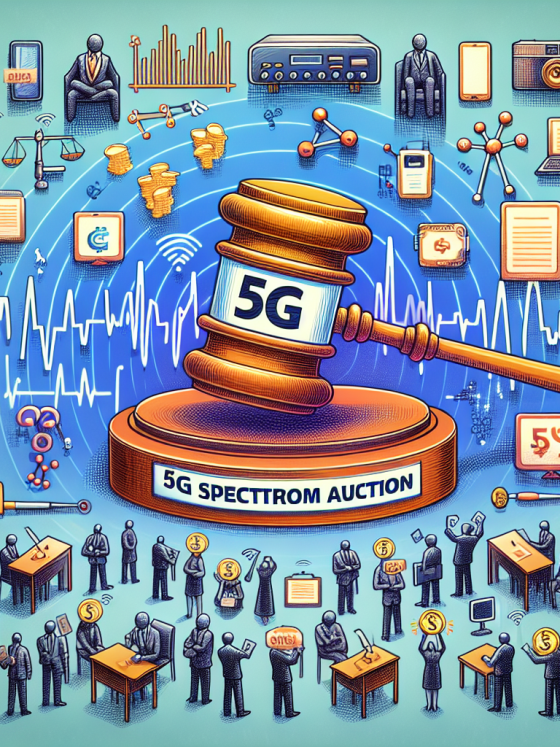
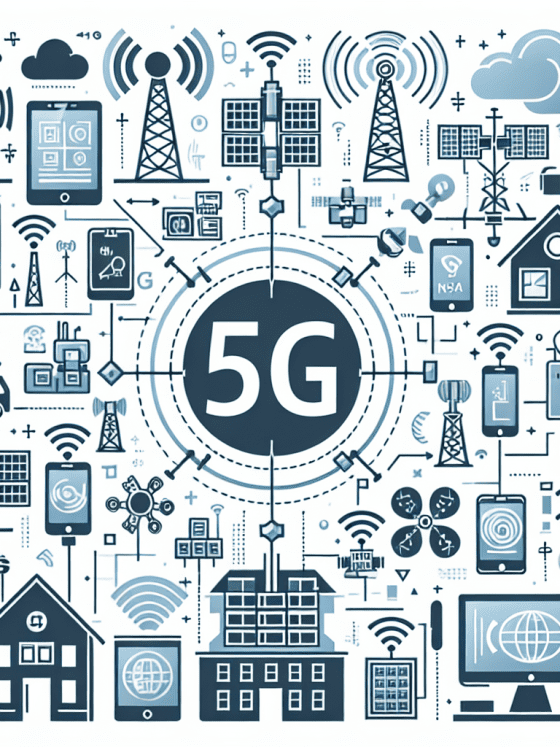
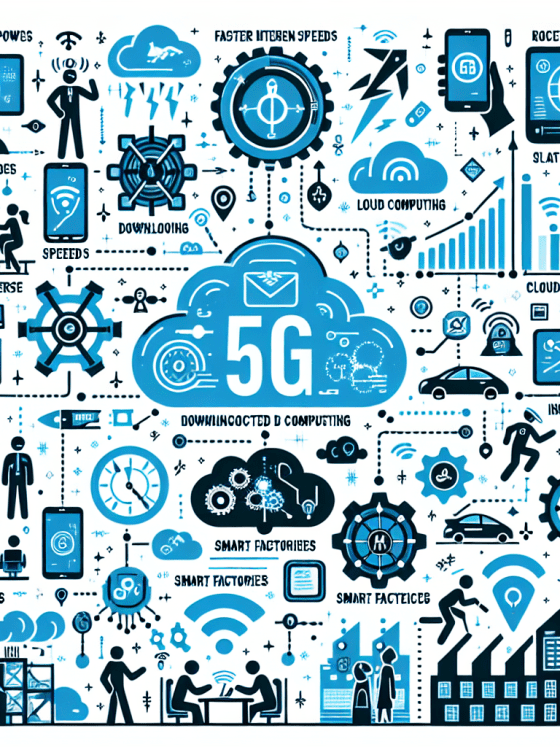
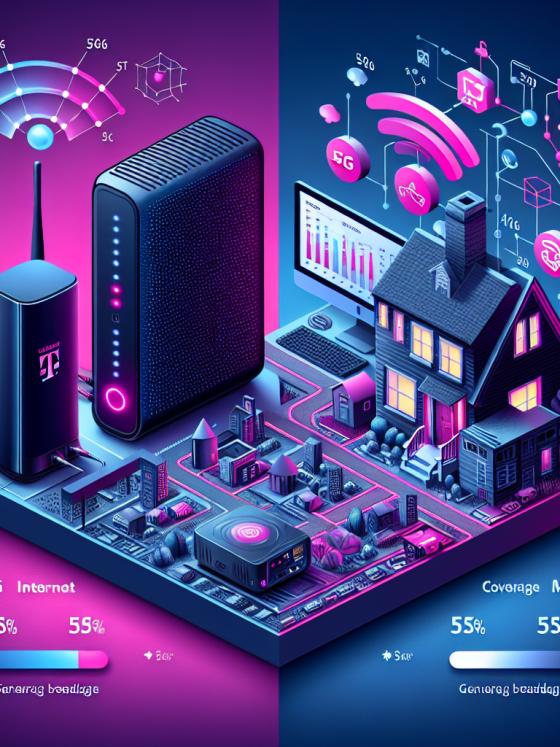
![Introduction to 5G Technology [PPT]](https://5ginnovations.top/wp-content/uploads/2024/07/introduction-to-5g-technology-ppt-560x747.jpg)
![Complete Guide to 5G Technology [PDF]](https://5ginnovations.top/wp-content/uploads/2024/07/complete-guide-to-5g-technology-pdf-560x747.jpg)